90% of the compressor burns down due to these reasons (Refrigeration Oil)
90% of the compressor burns down due to these reasons (Refrigeration Oil)
The common faults of compressors mainly include the following three types: 1. Motor burns; 2. Oil shortage caused by refrigerating oil; 3. Liquid shock.
The last issue of Refrigeration Encyclopedia summarized the common failures of compressors ----1, the motor burned out. Today, let’s talk about: 2, the lack of oil caused by refrigerating oil.
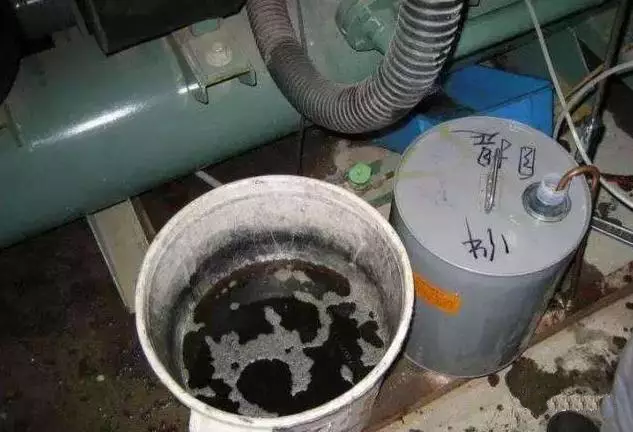
1 Introduction
Compressor is a complex machine running at high speed. Ensuring adequate lubrication of moving parts such as compressor crankshaft, bearings, connecting rods, pistons, etc. is the basic requirement for maintaining the normal operation of the machine. For this reason, the compressor requires regular inspection of the lubricating oil level and color. The lack of oil in the compressor, the deterioration of oil coking, the dilution of liquid back, the flushing of refrigerant, and the use of inferior lubricating oil are more common. Insufficient lubrication can cause wear or scratches on the bearing surface, and in severe cases, it can cause shaft holding, piston jamming in the cylinder, and the resulting connecting rod bending and fracture accidents.

Lack of oil is one of the compressor faults that can be easily identified. When the compressor is out of oil, there is little or no oil in the crankcase.
The compressor is a special air pump, a large amount of refrigerant gas is discharged while also entraining a small part of lubricating oil (called running oil or running oil). Compressor rushing is inevitable, but the running speed is different.

There is approximately 2-3% of lubricating oil in the exhaust gas of a semi-hermetic piston compressor. The scroll compressor is 0.5-1%. For a 6-cylinder compressor with a displacement of 100m3/hr and a crankcase oil storage capacity of 6 liters, 3% oil rushing means about 0.3-0.8 liters/min of oil rushing, or the compressor runs without oil return The time is ten minutes. If the lubricating oil discharged from the compressor does not come back, the compressor will be short of oil.
There are two ways to return oil to the compressor: one is to return oil from the oil separator, and the other is to return oil from the air return pipe. The oil separator is installed on the compressor exhaust pipe, and generally can separate 50-95% of the oil. The oil return effect is good, the speed is fast, and the amount of oil entering the system pipeline is greatly reduced, thereby effectively extending the operation without oil return. time.
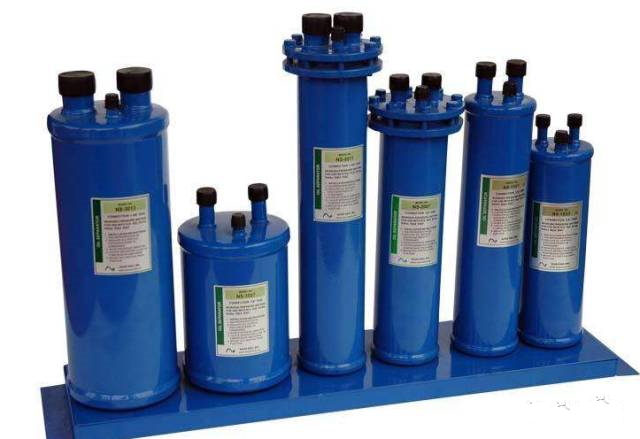
It’s not uncommon for cold storage refrigeration systems with extremely long pipelines, full-liquid ice-making systems, and freeze-drying equipment with very low temperatures to return more than ten minutes or even dozens of minutes after starting up, or with very little oil return. Design A bad system will cause the compressor to stop due to low oil pressure. The installation of a high-efficiency oil separator in this refrigeration system can greatly extend the operating time of the compressor without oil return, so that the compressor can safely pass the crisis stage of no oil return after starting up.
The lubricating oil that has not been separated will enter the system and flow with the refrigerant in the pipe to form an oil circulation. After the lubricating oil enters the evaporator, part of the lubricating oil is separated from the refrigerant due to low temperature and low solubility; on the other hand, the lubricating oil is easy to adhere to the inner wall of the tube and flow is difficult due to the low temperature and high viscosity.

The lower the evaporation temperature, the more difficult it is to return the oil. This requires that the design and construction of the evaporation pipeline and the return pipeline must be conducive to oil return. The common practice is to adopt a descending pipeline design and ensure a larger air flow velocity. For refrigeration systems with extremely low temperatures, such as -85°C and -150°C medical cryogenic chambers, in addition to high-efficiency oil separators, special solvents are usually added to prevent lubricating oil from blocking capillaries and expansion valves, and to help return oil.
In practical applications, oil return problems caused by improper design of the evaporator and return line are not uncommon. For R22 and R404A systems, the oil return of the flooded evaporator is very difficult, and the system's oil return pipeline design must be very careful. For such a system, the use of high-efficiency oil separator can greatly reduce the amount of oil entering the system pipeline, and effectively extend the non-oil return time of the air return pipe after starting up.
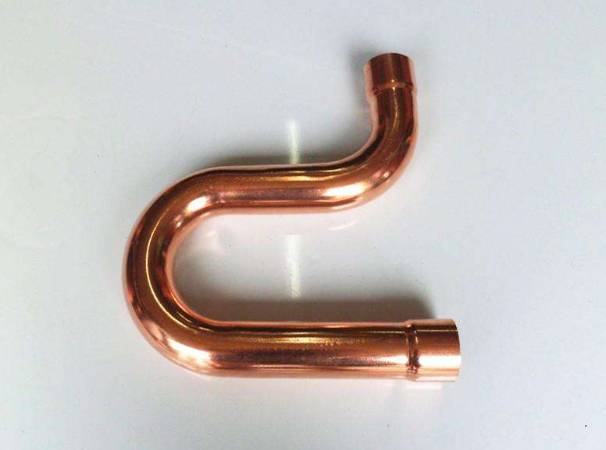
When the compressor is higher than the evaporator, the oil return bend on the vertical return pipe is necessary. The return bend should be as compact as possible to reduce oil storage. The spacing between the oil return bends should be appropriate. When the number of return bends is large, some lubricant should be added.
The return line of the variable load system must also be careful. When the load is reduced, the air return speed will decrease, too low speed is not conducive to oil return. In order to ensure the oil return under low load, the vertical suction pipe can adopt double vertical pipes. Frequent starting of the compressor is not conducive to oil return. During defrosting, the temperature of the evaporator increases and the viscosity of the lubricating oil decreases, making it easy to flow. After the defrost cycle, the refrigerant flow rate is large, and the retained lubricating oil will return to the compressor in a concentrated manner.
When the refrigerant leaks too much, the air return speed will decrease. If the speed is too low, the lubricating oil will stay in the air return line and cannot return to the compressor quickly.

The oil pressure safety device will automatically stop when there is no oil to protect the compressor from damage. Hermetic compressors (including rotor and scroll compressors) and air-cooled compressors without sight glass and oil pressure safety devices, there are no obvious symptoms when there is oil shortage, and will not stop, the compressor will wear and damage unconsciously . Compressor noise, vibration or excessive current may be related to lack of oil. Accurate judgment of compressor and system operating conditions is very important.
The wear caused by the lack of oil in the compressor is generally more uniform. If there is little or no lubricating oil, there will be severe friction on the bearing surface and the temperature will rise rapidly within a few seconds. If the power of the motor is large enough, the crankshaft will continue to rotate, and the crankshaft and bearing surfaces will be worn or scratched, otherwise the crankshaft will be locked by the bearing and stop rotating. The reciprocating movement of the piston in the cylinder is the same. Lack of oil will cause wear or scratches. In severe cases, the piston will be stuck in the cylinder and cannot move.
3. Insufficient lubrication
The following three reasons can also cause insufficient lubrication:
1. Lubricating oil cannot reach the bearing surface;
2. Although the lubricating oil has reached the bearing surface, the viscosity is too small to form an oil film of sufficient thickness;
3. Although the lubricating oil has reached the bearing surface, it has been decomposed due to overheating and cannot provide lubrication.
Blockage of the oil suction network or oil supply pipeline, oil pump failure, etc. will affect the delivery of lubricating oil, and the lubricating oil cannot reach the friction surface away from the oil pump. The oil suction net and the oil pump are normal, but the bearing wear, excessive clearance, etc. cause oil leakage and low oil pressure, which will prevent the friction surface away from the oil pump from getting lubricating oil, causing wear and scratches.
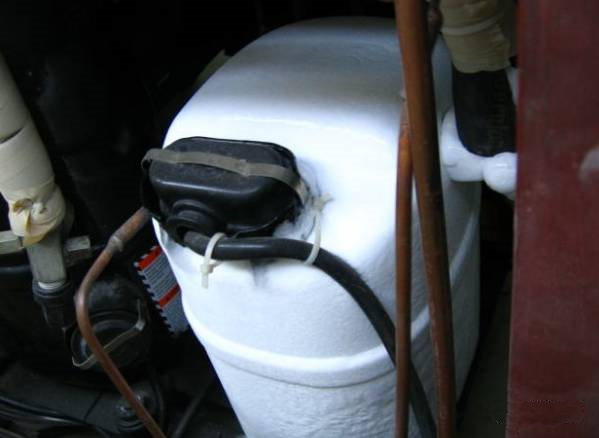
Liquid flood back is a common system problem, and a major hazard of liquid flood back is to dilute the lubricating oil. After the diluted lubricating oil reaches the friction surface, the viscosity is low and a protective oil film of sufficient thickness cannot be formed, which will cause wear over time. When the amount of liquid return is relatively large, the lubricating oil will be very thin, not only can not play a lubricating effect, but also dissolves and washes the original oil film, causing refrigerant washout.
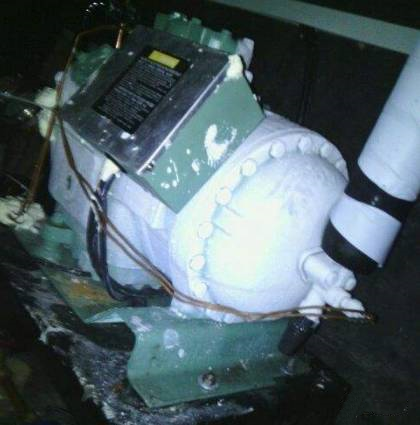
Due to various reasons (including the compressor startup stage), the friction surface temperature that does not get lubricating oil will rise rapidly, and the lubricating oil will begin to decompose after exceeding 175°C. "Insufficient lubrication-friction-high surface temperature-oil decomposition" is a typical vicious circle. Many vicious accidents, including connecting rod holding shaft and piston jamming, are related to this vicious circle.
4. Conclusions and recommendations
conclusion and suggestion:
1. The root cause of the lack of oil is not the amount and speed of the compressor running oil, but the poor oil return of the system.
2. Installing an oil separator can quickly return oil and extend the compressor's operation time without oil return.
3. The design of evaporator and return gas pipeline must take oil return into consideration.
4. The migration of liquid and refrigerant will dilute the lubricating oil, which is not conducive to the formation of oil film. Pay attention to the liquid return of the system.
5. Oil pump failure and oil circuit blockage will affect the oil supply and oil pressure, resulting in lack of oil on the friction surface. Pay attention to the oil circuit system detection.
The root cause of the lack of oil lies in the system. Only replacing the compressor or some accessories cannot fundamentally solve the problem of lack of oil.


